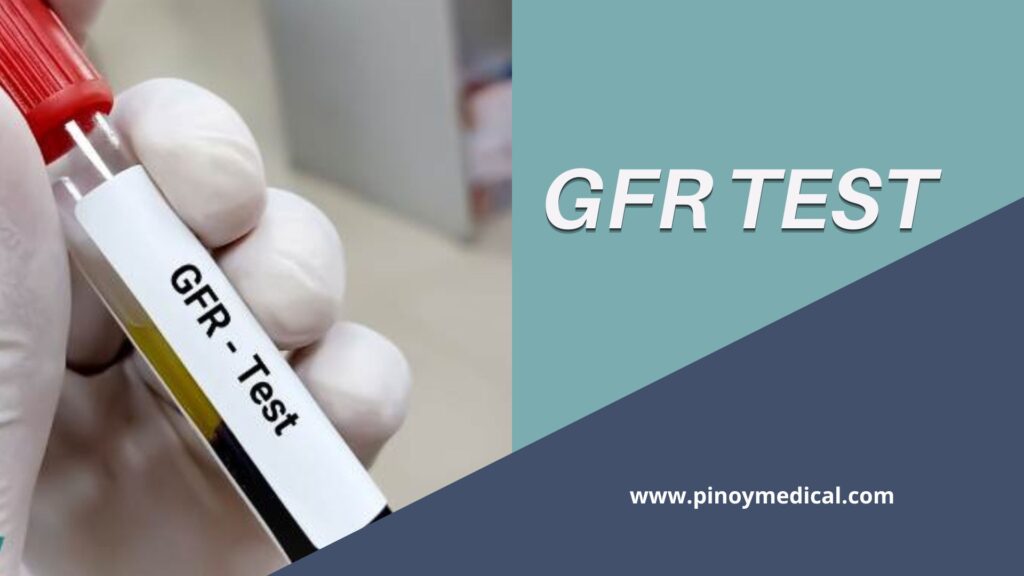The GFR Test evaluates renal function, which is critical for identifying and treating kidney disorders. It gauges the kidneys’ ability to remove waste from the blood by measuring the glomerular filtration rate. Frequent testing aids in the early detection of kidney issues, allowing for prompt action and the avoidance of complications.
GFR Test Price
GFR tests at hospitals and clinics range from ₱5,750 to ₱14,000, contingent upon the method that is used. It’s a good idea to ask about any discounts or package packages that might be offered when making the test appointment. Consult with local hospitals or medical centers for precise prices.

Popular Hospitals and Clinics that Offer GFR Test
The GFR Test costs vary between hospitals and labs depending on several parameters, including facility reputation and location, physician competence, facility quality, and other services offered. The list of renowned clinics that provide the “GFR Test” is as follows:
| Hospital/Lab | Location | Contact | |
| De La Salle University Medical Center | Gov. D. Mangubat Avenue, Zone IV 4114 Dasmariñas | (046) 4818000 | [email protected] |
| Calamba Medical Center | National Highway Crossing, Calamba City, Laguna Philippines 4027 | 09774290560 | [email protected] |
| Asian Hospital and Medical Center | 2205 Civic Dr, Alabang, Muntinlupa, 1780 Metro Manila | +632 88765755 | [email protected] |
| Makati Medical Cener | No. 2 Amorsolo Street, Legaspi Village, Makati City, Philippines 1229 | +632 88888999 | [email protected] |
| St. Luke’s Medical Center | 279 E Rodriguez Sr. Ave,Quezon City, Philippines Rizal Drive cor. 32nd St. and 5th Ave Taguig City, Philippines | +632 87230101 +632 87897700 | [email protected] [email protected] |
| Lung Center of the Philippines | Quezon Avenue, Barangay Central, Diliman, Quezon City 1100 | 02 89246101 | [email protected] |
| The Medical City | Ortigas Ave, Pasig, Metro Manila | +632 89881000 | [email protected] |
| National Kidney and Transplant Institute (NKTI) | J2WW+WWP, East Ave, Diliman, Quezon City, 1101 Metro Manila | (02) 89810300 | [email protected] |
| Diliman Doctors Hospital | 251 Commonwealth Ave, Matandang Balara 1119 Quezon City | 02 88836900 | [email protected] |
| Maxicare Healthcare Corporation | Maxicare Tower, 203 Salcedo, Legazpi Village, Makati, 1229 Metro Manila | (02) 79086900 +632 85821900 (PLDT) +632 77987777 (GLOBE) | [email protected] |
Video about GFR Test
FAQs
How is the GFR Test carried out?
You will have a blood sample taken from an arm vein for the GFR Test. To assess creatinine levels, a sample of urine from the previous day may also occasionally be taken. After that, the blood sample is transported to a lab for examination.
What circumstances can call for a GFR test?
If you have hypertension, diabetes, or a family history of kidney issues, among other risk factors for kidney disease, the GFR Test may be prescribed. In people with known renal disease, it’s also utilized to track kidney function.
How often ought one to perform a GFR test?
The frequency of the test will be decided by your healthcare professional based on your circumstances. Individual factors, including age, general health, and the existence of renal disease or risk factors, determine how frequently a person should get their GFR tested.
Does taking the GFR Test come with any risks?
The GFR Test is usually safe, but like any blood-drawing medical treatment, there could be a small chance of minor complications like bleeding, bruises, or infections at the site of the blood sample collection.
What is the meaning of a low GFR amount?
Reduced kidney function may be indicated by a low GFR value, which can be brought on by several conditions including renal disease, dehydration, or certain drugs.
Can lifestyle choices impact the outcome of a GFR test?
Yes, aspects of life including nutrition, level of hydration, and physical activity can affect the results of a GFR test. It’s important to lead a healthy lifestyle and adhere to any pre-test instructions given by your doctor.
How soon can one receive the results of a GFR test?
Depending on the laboratory or medical facility doing the test, the waiting period for the results of the GFR Test may change. Results are usually available in a few days.
If I don’t have any symptoms, can I still have a GFR test?
Yes, particularly if you have a family history of renal issues, diabetes, hypertension, or other risk factors for kidney disease.


